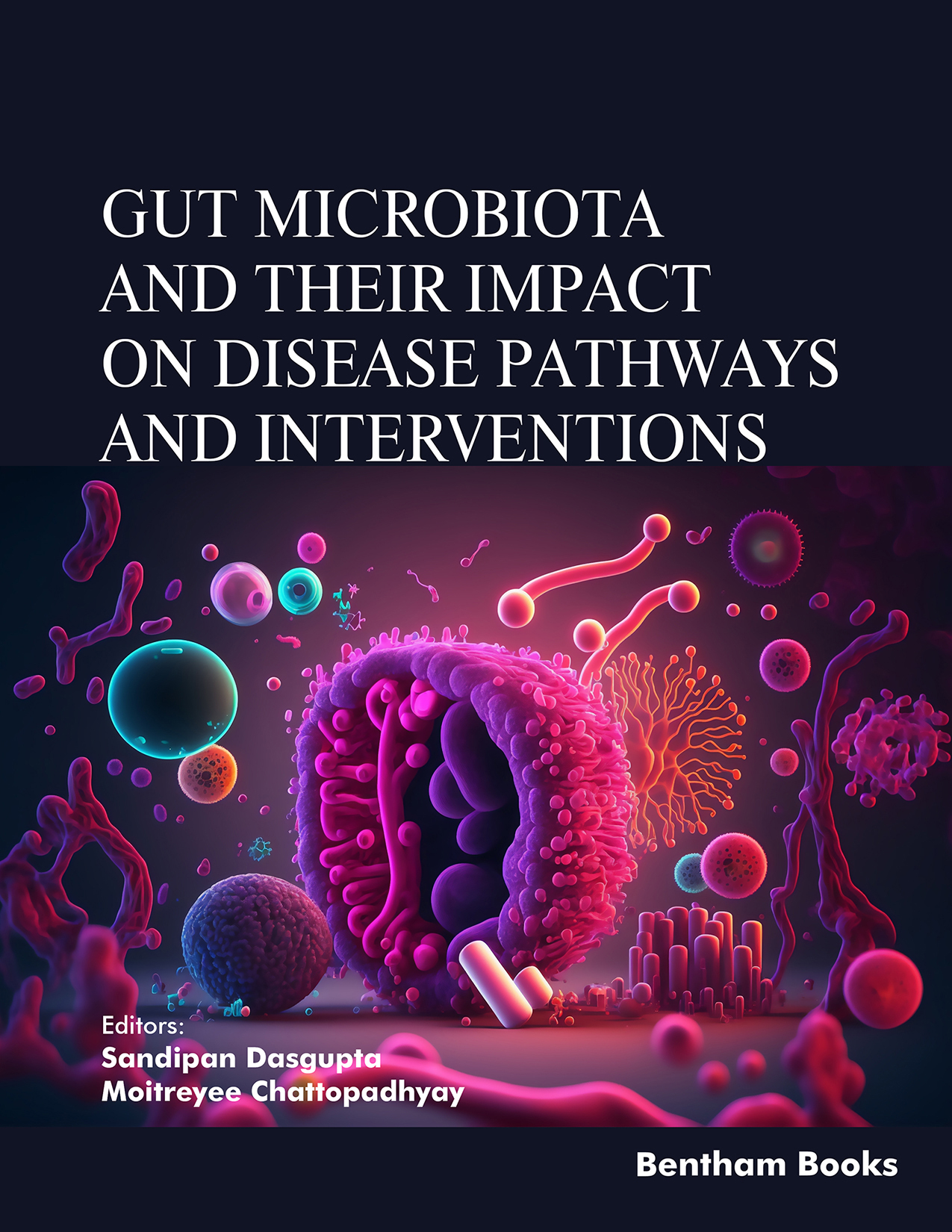Cardiovascular Diseases and Gut Microbial Metabolites

- Authors: Sabir Hussain1, Priyakshi Chutia2, Sailendra Kumar Mahanta3
-
View Affiliations Hide Affiliations1 Department of Pharmacology, School of Pharmacy, The Assam Kaziranga University, Jorhat 785006, Assam, India 2 Department of Pharmacology, School of Pharmacy, The Assam Kaziranga University, Jorhat 785006, Assam, India 3 Department of Pharmacology, School of Pharmacy, The Assam Kaziranga University, Jorhat 785006, Assam, India
- Source: Gut Microbiota and their Impact on Disease Pathways and Interventions , pp 93-117
- Publication Date: April 2025
- Language: English
Cardiovascular Diseases and Gut Microbial Metabolites, Page 1 of 1
< Previous page | Next page > /docserver/preview/fulltext/9789815324549/chapter-4-1.gif
Cardiovascular diseases (CVDs) continue to be the world's leading cause of death, and their aetiology is influenced by a complex interaction of lifestyle, environmental, and genetic variables. There is growing evidence that the billions of microorganisms and their metabolites that make up the gut microbiota may be crucial in regulating cardiovascular health. This chapter sheds insight on the possible mechanisms of action and therapeutic consequences of the complex link between gut microbial metabolites and cardiovascular disorders. The gut microbiota produces a wide range of metabolites, including lipopolysaccharides (LPS), bile acids, trimethylamine N-oxide (TMAO), and shortchain fatty acids (SCFAs), by fermenting food substrates. These metabolites have the ability to affect a number of physiological processes that are important for cardiovascular health, including inflammation, lipid metabolism, endothelial function, and blood pressure management. They can also have systemic effects. Certain gut microbial metabolites have been linked in recent research to the pathophysiology of heart failure, hypertension, atherosclerosis, and other CVDs. For example, a greater risk of atherosclerosis and severe cardiovascular events has been linked to elevated levels of TMAO, whereas the anti-inflammatory and potential atherogenic properties of SCFAs may offer cardioprotective advantages. Comprehending the function of gut microbiota metabolites in cardiovascular wellbeing presents opportunities for the creation of innovative treatment approaches and tailored therapies. Using dietary changes, prebiotics, probiotics, or microbial-based treatments to target the gut microbiota may present novel strategies for managing and preventing CVD. However, further research is warranted to elucidate the complex interactions between gut microbial metabolites, host physiology, and cardiovascular outcomes, paving the way for more effective strategies to combat CVDs in the future.
-
From This Site
/content/books/9789815324549.chapter-4dcterms_subject,pub_keyword-contentType:Journal -contentType:Figure -contentType:Table -contentType:SupplementaryData105

